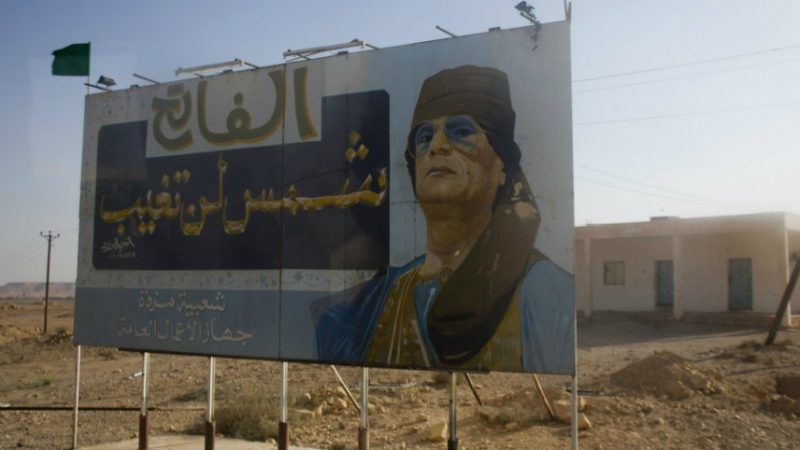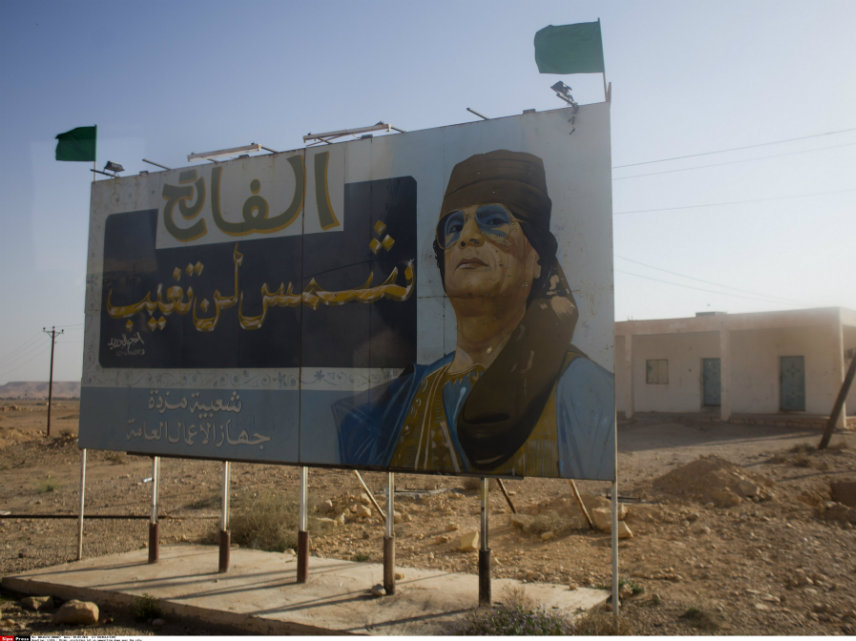Bloody Libyan Conflict Still Claiming Victims, Raising Questions About America's Role
At least 242 civilians have been killed and at least 324 wounded by over 2,000 airstrikes, some of which were carried out by the American military.


Nearly seven years after America helped topple Muammar Gadhafi's regime in Libya, the conflict has fallen off the front pages but still extracts a bloody toll.
According to a new report produced by the watchdog groups Airwars and New America Foundation, at least 242 civilians have been killed and at least 324 wounded by over 2,000 airstrikes, some of which were carried out by the American military.
Invading Libya without a clear exit strategy was possibly President Obama's biggest foreign policy blunder—something even he acknowledges—and Libyans are still paying the price. The new report says that less than half of the airstrikes in Libya are officially declared, with over 500 strikes bearing American origin. Gen. Khalifa Haftar and his Libyan National Army, however, are responsible for a majority of the strikes as the country continues to be roiled by civil war—a war that America bears at least some responsibility for causing.
"It's much more violent than before. It's the case that even a bad, brutal government is often better than none, or several ineffective governments," says Defense Priorities Foreign Policy Fellow Benjamin Friedman. "As in Syria, it seems that the choice is sort of between a dictator who rules through coercion and chaotic civil war. We got the latter."
It's true that Gadhafi was a brutal, murderous dictator, but it is difficult to argue that the present situation in Libya is somehow superior to its condition prior to the NATO-led incursion in 2011. Just as the invasion was a mistake, it's unlikely that staying in Libya will bring it closer to any reasonable notion of stability.
A coherent plan for peace cannot include sporadic airstrikes that create blowback against the American presence and, contrary to official claims, kill civilians. As long as the civil strife rages on, it may be best for the United States to take a back seat in this conflict, and instead seek to pursue trade and diplomacy when the dust settles.
"The chaos after Gadhafi fell was predictable, and there will be more chaos if we continue to be involved in a significant military capacity in the area," Friedman tells Reason.
Critics rightfully fault the Libyan intervention for lacking an exit strategy and a plan to rebuild the country once Gaddafi's regime was toppled. Unfortunately, that description holds true for U.S. foreign policy well beyond Libya. In reality, we've lacked a tenable, cogent exit strategy in all of our military excursions in the Middle East: Libya in 2011, Iraq in 2003, Afghanistan in 2001, the Gulf War in 1990, and even as far back as the removal of Iranian Prime Minister Mossadegh in 1953. Instead of fighting wars that make the world "safe for democracy," the U.S. often ends up substituting one barbaric dictator for another.
Editor's Note: As of February 29, 2024, commenting privileges on reason.com posts are limited to Reason Plus subscribers. Past commenters are grandfathered in for a temporary period. Subscribe here to preserve your ability to comment. Your Reason Plus subscription also gives you an ad-free version of reason.com, along with full access to the digital edition and archives of Reason magazine. We request that comments be civil and on-topic. We do not moderate or assume any responsibility for comments, which are owned by the readers who post them. Comments do not represent the views of reason.com or Reason Foundation. We reserve the right to delete any comment and ban commenters for any reason at any time. Comments may only be edited within 5 minutes of posting. Report abuses.
Please to post comments


Cue Obama's chuckle as he polishes that Nobel Peace Prize.
"We came, we saw, he died!"
-Secretary of State Hillary Clinton
So Obama's Nobel Peace prize did not result on the greatest Libyan democracy the World has ever seen?
Has there ever been a better Libyan democracy?
"Invading Libya without a clear exit strategy was possibly President Obama's biggest foreign policy blunder"
When you say "invading", what do you mean?
The ground forces that "invaded" Libya were mostly Qatari.
Obama had the best exit strategy of all--he didn't invade Libya.
He supported an invasion of Libya without much consideration of what happens next. He was following more than leading there though.
Smart power at its best!
Can someone translate the Arabic on the Gadafhi billboard?
I think the big word says "al-fateh," which means "the opening." The rest I can't quite make out.
But it looks like "theshemneen lenalfeeb," which overall may mean something like "we're looking for people - give us a call."
Disclaimer: my Arabic was never very good, and is very rusty.
The one time we need Dajjal, and he's nowhere to be found.
I like him. I don't know why he's so hated.
When he first showed up he was a self-declared troll and got aggressive and jerky enough with people that he got himself banned (which he's been bragging about on and off ever since).
He was also running another handle called AddictionMyth, and when that came out on top of the trolling the usual crowd assumed it was the Second (or Fifth, or whatever) Coming of Tulpa.
Personally, I don't think Tulpa has visited this site in many years, but I could be wrong.
But when he came back he wasn't nearly as aggressive, and now just has his "addiction myth/autism" obsession, which seems fairly harmless.
Dajjal has definitely moderated himself. Or the Reverend just makes him look that way.
Fun fact - while "Dajjal" is the name of a sort of Islamic anti-Christ, the word also means "Juggler." Crusty's alter-ego? I'll let you be the judge.
I had no idea there were still American forces in Libya. My impression was we came, we destroyed, and we left the Libyans to fight each other among the ruins. Has the massive irrigation system known as the Great Manmade River been rebuilt? It was truly impressive, bringing fresh water from deep wells under the desert to the people living near the coast, but most Americans have never heard of it.
If American forces weren't there, Rommel would invade and take North Africa again. You don't want that to happen, do you?
Rommel is currently busy invading universities in the UK.
You magnificent bastard, I read your book!